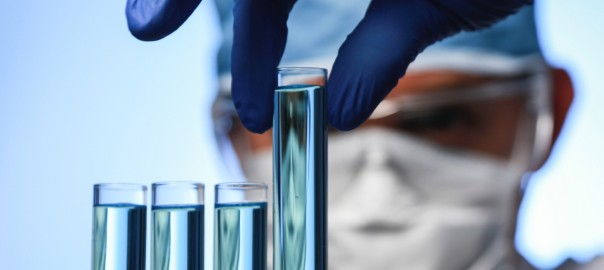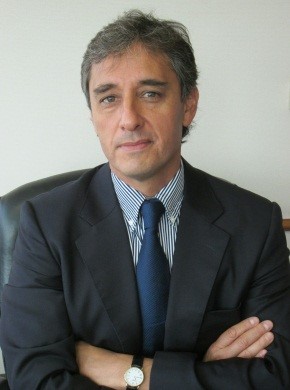Introduction
In conformity with the Health Decree N° 3 (the Decree) that contains the Chilean Sanitary
Regulation, pharmaceutical products can be marketed in Chile only upon securing a sanitary registration with the Regulatory Agency, the Chilean Health Institute (ISP). This Regulation establishes three different procedures for the registration of pharmaceutical products. First, an ordinary procedure where applicants are to support the applications with full scientific data demonstrating the safety and efficacy of the products.
Second, a simplified procedure whereby applicants can make reference to an earlier registered product containing the same active principle, in the same amount per pharmaceutical form and the same way of administration. In this procedure the applicant is exempted from the obligation of presenting some safety and efficacy data, in which regard it can rely on the information provided by the product of reference.
Finally, there is also a summary procedure which applies only under exceptional circumstances, when distribution of the pharmaceutical product is needed in order to deal with public health concerns.
The Decree defines a pharmaceutical product in broad terms so as to include within its scope chemically synthesized and biological products without any distinctions.
The Decree defines a biological product as that one which production involves living organisms and among this category it includes biotechnological products.
Furthermore, the Decree specifies that the simplified procedure is not available for biological products.
Finally, the Decree also states that in the case of biotechnological products the Ministry of Health was to issue a technical rule establishing the requirements of a simplified procedure for biotechnological products, including a list of products of reference available at the time of issuance. Following this mandate, the Ministry of Health issued Technical Rule N° 170 (Technical Rule), which came into force upon its publication in the Official Gazette of September 6, 2014.
Main Features Of The Technical Rule.
This Technical Rule sets out the legal pathway for the registration of biosimilar in Chile, and its basic features are the following:
- SCOPE OF APPLICABILITY
The Technical Rule refers only and exclusively to a particular kind of biological products, this is, biotechnological products. Accordingly, this Technical Rule and in particular the dispositions that establish the possibility of abbreviating safety and efficacy information, are not available for other kinds of biological products such as vaccines, serum, antibiotics, which must follow the ordinary procedure for its registration.
- SUBJECT MATTER OF THE TECHNICAL RULE.
This Technical Rule regulates the following subject matters:
i) The general requirements that should be fulfilled by biotechnological products to
demonstrate quality, safety and efficacy.
ii) The conditions that biotechnological products should meet in order to abbreviate
the safety and efficacy information when seeking sanitary registration.
iii) The requirements of quality, safety and efficacy of biotechnological products
either original or biosimilar. - REGISTRATION OF BIOSIMILAR, COMPARABILITY.
i) Biotecnological product of reference.
A biosimilar can only declare as product of reference a biotechnical product
previously registered in Chile under the ordinary procedure. Thus is not possible
to choose as a product of reference another biosimilar.ii) The abbreviation in the studies is only permitted with respect to safety and
efficacy of the biosimilar.It is important to bear in mind that even if the biosimilar can abbreviate some safety and efficacy studies that demonstrates comparability with the biotechnological product of reference, it should always comply with all the general requirements and information to demonstrate quality as any other biotechnological product.
iii) Sequential Analysis.
The comparability analysis of the biosimilar with the product of reference has a sequential nature, this is, the ISP should first verify that the biosimilar fulfills all the requirements of quality assessing the structural comparability and the process for manufacture of the biosimilar products and those ones of the product of reference, and depending on how complete and satisfactory this comparability analysis is, only then it will be determined which clinical and pre-clinical studies that demonstrates safety and efficacy of the biosimilar can be effectively abbreviated, and to what extent.
Following every phase of the comparability analysis, the differences with the product of reference should be assessed and if significant, the procedure should be stopped and further prosecution of the application will be performed under the rules of the ordinary procedure.
The same rationale applies in cases of incomplete applications which should not be further prosecuted under the simplified procedure but under the ordinary one.
iv) Preclinical and clinical studies to demonstrate comparable safety and efficacy of the biosimilar with the product of reference.
As a rule, the comparability between the product of reference and the biosimilar should be evidenced with clinical and pre-clinical studies.
Nevertheless, the Technical Rule also contemplates the option of an alternative
regime whenever the pharmacokinetics and pharmacodynamics studies are sufficient to extrapolate the efficacy of the biosimilar with respect to a given medical indication, avoiding the need of further clinical studies.v) Immunogenicity.
Every biosimilar must present immunogenicity studies in spite of the fact that it may have already fulfilled all the quality, safety and efficacy requirements that have evidenced its comparability with the product of reference.
Furthermore, according to the Technical Rule, these studies of immunogenicity comparability should have a minimum duration of one year and should necessarily
be clinical studies. - THE OPTION OF INTERCHANGEABILITY
In conformity with the Technical Rule a product registered as a biosimilar with the ISP could be interchanged or substituted with the biotechnological product of reference, provided the interchange or substitution is accomplished through a gradual process and strict medical
Accordingly, the option of interchanging the product of reference by a biosimilar would be allowed only under the following conditions:
i) Only with respect to biosimilar registered in conformity with the dispositions of this Technical Rule.
ii) Only with medical authorization and strict medical surveillance, and within the context of a gradual interchanging process.
Biotechnological products registered under simplified procedure before the issuance of the Technical Rule, will not have the chance to be interchanged with the products of reference.
- OPTION OF EXTRAPOLATION
A product registered as a biosimilar with the ISP for the treatment of a given medical indication may be extra poled to another indication, and in order to grant this permission, the case file of the biosimilar should be reviewed in order to confirm it contains enough information to justify said extrapolation without the need of further studies of comparability, or to the contrary, if said additional studies would be required.
- UPDATING INFORMATION IN REGISTRATIONS FOR BIOTECNOLOGICAL PRODUCTS
GRANTED UNDER SIMPLIFIED PROCEDURE BEFORE ENACTMENT OF HEALTH DECREE N° 3Before enactment of the Decree, the Chilean Sanitary Regulation was contained in Supreme Health Decree 1.876 of 1995, which established no differences between biological and chemically synthetized pharmaceutical products. Therefore, there are several biotechnological products registered in Chile that did not comply with the requirements of the Technical Rule. In this regard, the Technical Rule only establish that it should be necessary to gradually and progressively ask the owners of said registrations for additional information demonstrating the safety and efficacy and risk/benefit relation of those products, however leaving organization of a calendar and the setting of the requirements and terms of delivery to the Ministry of Health. This resolution still has not been issued by the Ministry of Health, so it is neither clear how the system will operate, nor which will be the consequences for the companies that do not comply with the presentation of additional information within the terms fixed in that eventual resolution of the Ministry of Health.
It is likely to assume though, that this resolution will establish a gradual procedure, with different terms for given groups of biotechnological products.
i) Validity of biotechnological products registered under the simplified procedure of Supreme Decree 1.876. These registrations keep full validity and the said biotechnological products can continue to be commercialized in our country. Notwithstanding the above, as explained, these registrations will neither be interchangeable with their products of reference, nor eligible for extrapolation. In order for any of these products to be entitled to any of these two options, they must complete their dossiers with the additional information due in conformity with the Technical Rule.
- PHARMACOVIGILANCE
The Technical Rule establishes that any biotechnological product should present a
pharmacovigilance program and a risk management plan and both would have to be approved by the ISP. - DATA EXCLUSIVITY FOR BIOTECHNOLOGICAL PRODUCTS
The Technical Rule does not contemplate any dispositions concerning data exclusivity protection for biotechnological products and accordingly this subject matter continues to be ruled by the Law on Industrial Property 19.039 and Health Decree 107. In conformity with these Law and Regulation, biotechnological products that use a new chemical entity, will enjoy a period of protection of 5 years counted as from its registration. It is important to bear in mind that the concept of chemical entity encompasses all kind of active principles, either of chemical or biological origin and accordingly that these data exclusivity rules are fully applicable to both without any distinction.
- OPTION OF RELYING ON FOREIGN REGISTRATIONS.Finally, the Technical Rule does not establish any disposition allowing the possibility of relying in a sanitary registration granted for a biotechnological product abroad, this is, it is not possible to use as a product of reference one registered with a foreign agency.
CONCLUSION
Even though up until the date of this article no biosimilar registration has yet been granted in Chile, there at least two applications being prosecuted before the ISP, for products that have already achieved registration as biosimilar abroad, so it is likely that we see a similar outcome in Chile. Nevertheless, as the Technical Rule expressly mandates, the process of biosimilar registrations does not allow foreign referencing, which also guarantees the independence of the ISP’s decisions.
The Chilean medical and health community has welcome the issuance of this Technical Rule for it was long ago realized that the inherent complexities of biological molecules made quite difficult to safely establish quality, safety and efficacy similarities between two biological products, with the former regulations that lacked the completeness and strictness of these modern biosimilar rules modelled after the WHO Guidelines.



